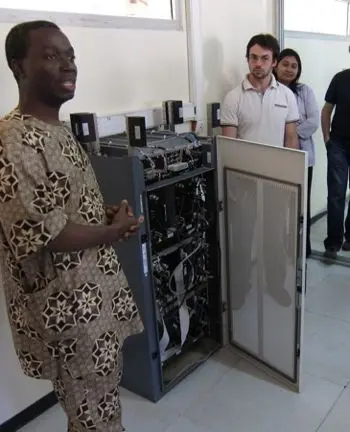
Tim Berners-Lee is best known as the father of the World Wide Web, but his latest side-project in Senegal and Mali–the World Wide Web Foundation’s VOICES project–aims to give youth and families without typical computing abilities a way to access the Internet with voice-enabled apps.
“VOICES will provide the tools, techniques, and training to make it easier to access the Web through voice. In doing so, we will explore the potential for billions of new users to access information and services from the Web,” Web Foundation CEO, Steve Bratt, tells Fast Company.
Bratt and his colleagues are still in consultation with locals in Mali and Senegal about how exactly the apps will work in accordance with local context and local needs. But generally speaking, an app might allow someone who is illiterate, for example, to call a number, choose from among medical, farming, or other menu
options, and engage with data and information in a visual manner that
does not require reading comprehension.
The pilots will take place in Senegal and Mali and will occur alongside another Web Foundation project already in place–the Re-Greening in Africa initiative, which helps farmers share information online about the innovations that help improve vegetable farming.
The VOICES project will focus on agriculture as well, but also health.
The stated goals of the project include “designing and implementing a free and open source platform with essential functionality for building and delivering voice-based services, identifying relevant and applicable business models for such services, designing new methodologies to build low-cost high quality text-to-speech and speech recognition engines,” and, perhaps most importantly, “training entrepreneurs and students on how to create such services and make them self-sustainable.”
That last part should prove the most significant of all, as what are innovations worth if they don’t help grow and push forward offshoot innovations for the long-term? And as Africa is home to many experiments in low-cost technology, incorporating local entrepreneurs and training them will be essential to ensure any kind of sustainable, local adoption.
“While close to 70% of citizens of the world today could access the Web through mobile communications, there are significant barriers blocking perhaps billions of people from using the Web at this time,” says Bratt, so those billions will surely benefit from a highly tailored, customized, participatory design process, as the Web Foundation proposes to embark upon.
Follow me, Jenara Nerenberg, on Twitter.
Recognize your brand’s excellence by applying to this year’s Brands That Matter Awards before the early-rate deadline, May 3.